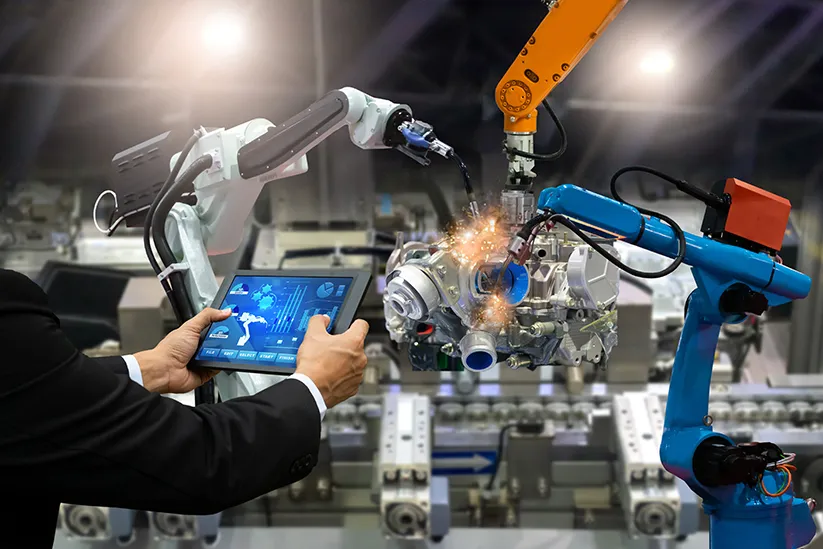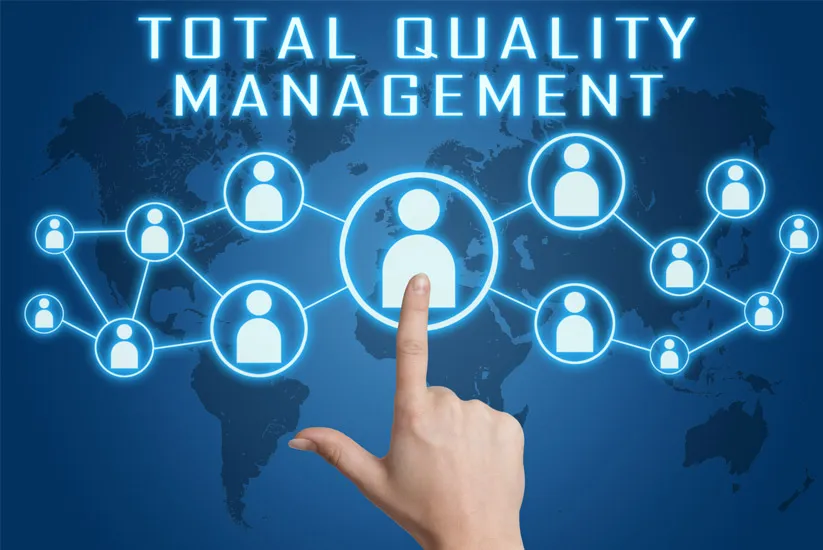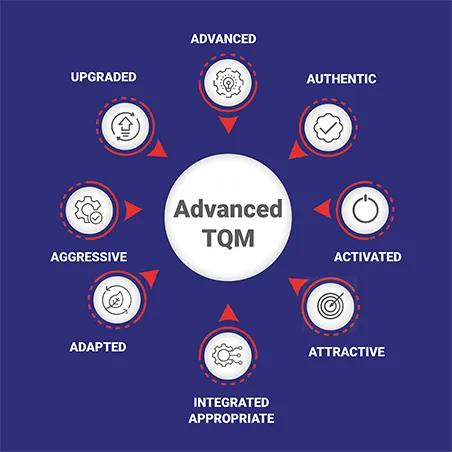
What Can Organisations Gain by Challenging the Prestigious Deming Prize
September 7, 2021
What You Need to Know About These Types of Analytics
September 21, 2021The Future of Work in Manufacturing is Digital – Is Your Organization Prepared?
Smart factories have become a fundamental part of the manufacturing landscape now. Underpinned by the most modern and innovative technology systems and solutions, these factories are equipping manufacturers with data-driven decision-making capabilities, strengthening their Industry 4.0 game while also helping them transition to Industry 5.0. By unearthing deep insights into everyday processes, they are paving the way for continual improvement on the factory floor.
With reports estimating the digital transformation market to be worth $3.2 trillion by 2025, there is no denying that the future of work in manufacturing is more on digital. But the important question is – is your organization prepared?
The digital future of manufacturing
As the challenges hounding the manufacturing sector to intensify, the adoption of digital technologies and intelligent systems is on a steady rise. By bringing all data and information into a central repository, they help manufacturers detect patterns and correlations through analytics which will be a source to identify improvement areas.
In addition to solving common problems, technologies like RPA, IoT, and Analytics also fast-track digital transformations by removing silos, connecting systems, and reducing human intervention, thereby enabling business excellence through integration, automation, and intelligence.
With digital technologies, manufacturers can:
-
Enable IoT across the manufacturing setup and connect everything into a single, easy-to-manage and monitor ecosystem of connected devices
-
Remove silos that exist across teams and departments and enable end-to-end integration between systems and processes
-
Improve security across the organization systems and enhance reliability and throughput of the equipment
-
Automate mundane, everyday tasks, thus reducing human intervention and allowing them to focus on critical tasks
-
Build an integrated Data Lake and leverage modern analytics platforms and AI/ML technologies to discover issues and opportunities
Setting the stage for digital manufacturing
There is no doubt about the fact that digital is the future of every industry – not just manufacturing. Industry 4.0 (Digitalization) adoption is not just about employing a couple of modern IT systems. To be prepared for this massive change, manufacturers need to drive efforts in the right direction.
Here are some tips for setting the stage for digital manufacturing:
-
Evaluate your current maturity:: The first important step in establishing a digital future for your manufacturing setup is evaluating your existing processes. Although modern technology adoption can open doors to several opportunities, not all of your processes need to be revamped overnight. Assessing your current capabilities (and challenges) can help you get a clear picture of areas of your business that would benefit the most with digital technology adoption, allowing you to prioritize your implementations and investments. Workshops around the SIRI framework shall be a good starting point on this to begin the digital transformation journey.
-
Identify key use cases: Once you have detailed insight into your existing processes, the next step is to identify key use cases for digital transformation. This can range from improving shopfloor performance to optimizing logistics, enabling predictive or preventive maintenance to improve product development, enhancing workforce safety to improving integration. Embracing digital technologies across some or all of these areas in a sequential manner can help you achieve greater speed and visibility across the entire value chain while improving the reliability of your systems, products, and the productivity of your employees.
-
Determine which technologies are most relevant: Once you’ve identified the use cases, the next step is to determine the technologies you need to implement across each of those use cases taking short-term and long-term ROI into consideration while AI and ML can help improve the accuracy and timeliness of business decisions, automation can streamline day-to-day processes, and digital twins to optimize the product, production capability and system. So, depending on your particular requirement, make a list of systems or solutions that would bring optimized business value.
-
Modernize your legacy systems: In addition to embracing new digital technologies, it is also critical that you modernize your legacy systems. Since they offer poor security, availability, and integration capabilities that can restrict seamless, enterprise-wide integration. Modernizing them through refactoring or replacing or updating is a great way to make them more suited to operate and succeed in a digital manufacturing landscape.
-
Educate and train your workforce: Successful digital transformation of manufacturing is only possible with the support of your workforce. Not having their support is often one of the biggest gaps that can completely fail your transformation efforts. Therefore, it is extremely important that you upskill the workforce on the need for embracing modern digital technologies and being open to new ways of working that will result in higher levels of productivity and efficiency. It is also vital that you train them on using these new technology systems, so they can drive maximum results.
-
Invest in a partner: All said and done, given how complicated an enterprise-wide digital transformation can be, investing in a qualified and experienced partner can ensure the success of your efforts. TechnoFunctional experts will have to work in close collaboration with your organization, understanding your organization's problems and challenges, suggesting the right solutions, building a roadmap, and also implementing and supporting the solutions – so your organization can operate at peak effectiveness, every day.
As digitization radically changes the face of the manufacturing sector, organizations need to quickly implement innovative technologies to transform their entire value chain. However, for long-term sustainable results, it is important to prepare the manufacturing organization for the massive transformation and take certain steps to ensure significant efficiency gains.
Is your organization prepared for this change?
Irrespective of whether the digital transformation journey started or in progress, we can help! Contact us today!





